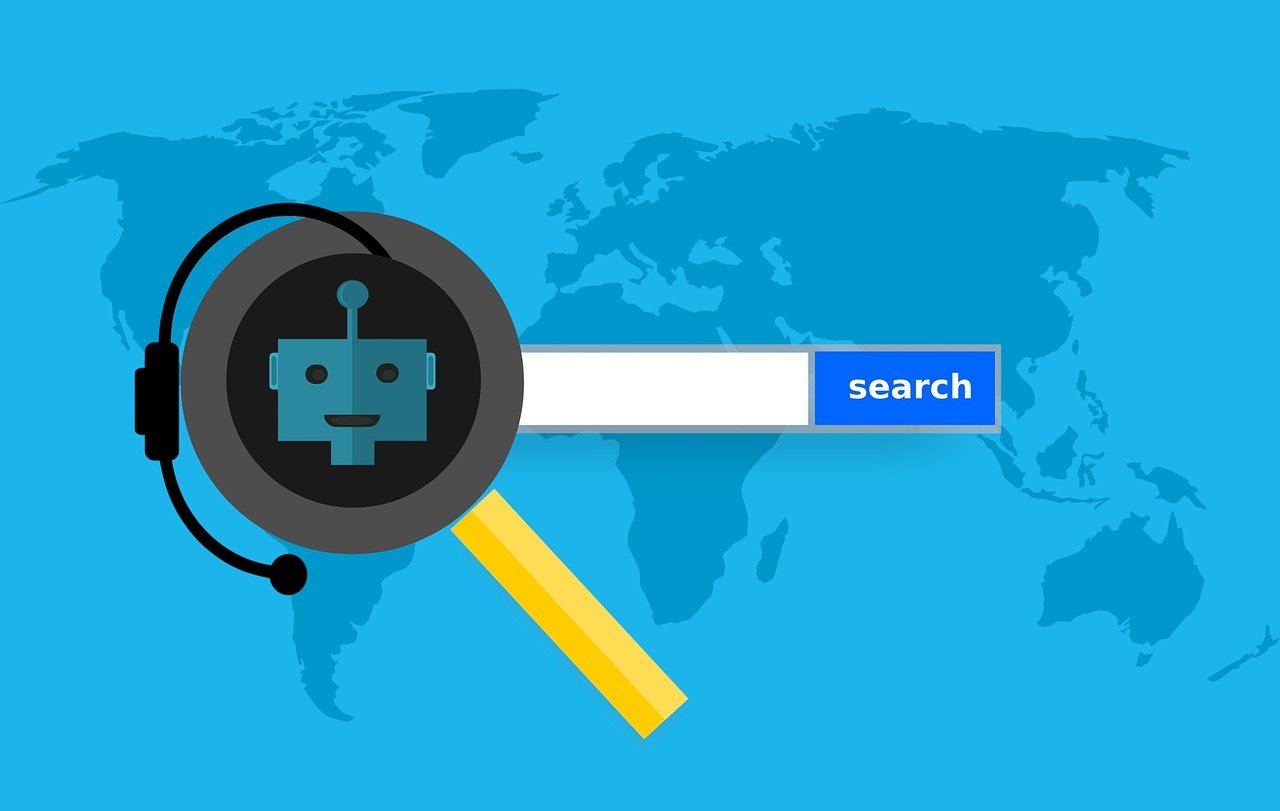In this post, we will reveal the significance of CAPTCHA in web security and why you should use it on your website.
In this digital age, every primary internet user must have encountered the CAPTCHA when visiting certain websites.
Table of Contents
What is CAPTCHA?
If you have ever wondered what it means, CAPTCHA entirely means “Completely Automated Public Turing Test to tell Computers and Humans Apart.”
CAPTCHA is a program that checks if the website visitor is a human or some malicious spambot. They are usually (but not only) randomly generated colourful text and distorted, so software robots are unable to interpret the text.
Why CAPTCHA? Those images are annoying.
For this reason, one may ask, “Why CAPTCHA, and why should I incorporate it into my website?”
The CAPTCHA test emerged as a test to detect if computers possessed artificial intelligence, i.e., they could reason like humans. During this research, they discovered that some tests are easy for humans but very difficult for robots, and then CAPTCHA was developed.
Robots are sometimes used to wreak havoc on the internet. They are used by hackers to perform malicious tasks on the internet. However, with the implementation of CAPTCHA on a website, bots are granted no entry.
Besides, CAPTCHAs are automatically generated and need no human maintenance. This means CAPTCHA could help keep bots off a website without constant checks or excessive spending.
READ OUR: Web Security Guide
Importance of CAPTCHAs in Web Security
A CAPTCHA is indeed not separating humans from bots for no reason. Here are some of the main reasons one should implement CAPTCHA on a website.
Prevents DDoS Attacks
Sometimes, hackers flood a site with bot traffic. This makes it difficult or even impossible for legitimate users to access the website.
A DDoS attack is a common form of attack usually targeted at large scale websites that offer premium services, such as bank websites, web hosting companies, etc. This is done to get some of their traffic to a competing website.
Wikipedia suffered a DDoS attack, which made it inaccessible on September 6 and 7, 2019. Many other popular websites have also been victims of DDoS.
To prevent this scenario, the CAPTCHA is implemented as a preventive measure. A CAPTCHA makes it impossible for bots to gain access, thereby wreaking havoc.
Protecting free sign-ups on websites
Create an unprotected free service, and you’ll see hundreds of sign-ups per minute. This happened to the earlier free mail services like Gmail and Yahoo! Mail.
With the advent of CAPTCHAs, however, these services can be protected and kept away from bots so that they can handle the requests of real humans.
Prevents sensitive information from scrapers
Some bots are automated to copy confidential information from online sources. Such bots scour the internet in search of emails in text format. These emails may be used to create email lists that are then sold to people to buy.
Not protecting emails with CAPTCHA on a website can lead to the receipt of unwanted emails due to the inclusion of one’s email address in unwanted lists. This could compromise digital security.
Therefore, it is necessary to protect sensitive information, such as emails and phones, on one’s websites with CAPTCHAs.
READ ALSO: How To Prevent A DDoS Attack On Your WordPress Site
Secure online shopping
To maximize digital security, CAPTCHAs are generally integrated into online shopping websites, so customers can complete it before making any order.
If a CAPTCHA is not implemented in online shopping website, a spam bot could utilize the opportunity to get hundreds of giveaways, and even complete fake orders and disrupt customer service using DDoS attacks.
Keeps webpages safe from bots
Sometimes, it may be desirable to keep some websites un-indexed and not discovered by search engine bots.
However, the HTML tag does nothing to stop bots from getting access. All it does is to tell the bots, “you are not allowed.”
To keep your web page safe, it is essential to protect it with CAPTCHA web security.
READ ALSO: What Are Overlays Used For In Web Design?
Prevents dictionary attacks
Ever heard of brute force? It’s a system where an automated program tries guessing a user password by trying hundreds of guesses per minute. This can compromise digital security and lead to the loss of information, to bots.
Brute force can be attacked simply by using CAPTCHAs. The bot isn’t able to solve the CAPTCHA, so brute force is impossible.
READ ALSO: Top 5 DDoS Attack Challenges For Telecom Companies
Is CAPTCHA Effective For Web Security?

So far, CAPTCHAs have performed their duties, to a large extent. However, with the advent of modern technology and even more sophisticated artificial intelligence, some programs are gradually outsmarting CAPTCHAs.
When this was discovered, it was quickly attended to, and a new generation of CAPTCHAs evolved. This became known as reCAPTCHA.
No matter how annoying a CAPTCHA might look, you should have it on your website for improved digital security.
READ ALSO: What Is Automated IP Address Management?
Importance of CAPTCHA in Web Security: FAQs
CAPTCHAs play a significant role in protecting websites from malicious activity. Here’s a breakdown of their importance:
What is the importance of CAPTCHA?
CAPTCHAs act as a challenge-response test designed to distinguish between humans and automated bots. This helps prevent automated attacks on websites, such as:
- Spam Bots: Filling comment sections or contact forms with unwanted content.
- DDoS Attacks: Overwhelming a website with traffic to make it inaccessible to legitimate users.
- Brute-Force Attacks: Trying to guess passwords or login credentials through automation.
How does CAPTCHA improve web security?
By presenting a challenge that’s difficult for bots to solve, CAPTCHAs add an extra layer of security. This makes it more time-consuming and resource-intensive for attackers to launch automated attacks.
What is the original purpose of CAPTCHA?
Originally, CAPTCHAs were created to tell humans and computers apart to:
- Decipher distorted text scanned from books for digital archives.
- Identify objects in images to improve image recognition software.
Who benefits from CAPTCHAs?
Several parties benefit from CAPTCHAs:
- Website Owners: Reduced spam, fake accounts, and protection from automated attacks.
- Legitimate Users: A more secure and reliable online experience.
- The Internet as a Whole: Protects against large-scale disruptions caused by automated attacks.
What are the positives and negatives of using CAPTCHAs?
Positives:
- Enhanced web security
- Reduced spam and automated attacks
Negatives:
- Can be frustrating for users, especially if difficult to solve
- May not be entirely foolproof against sophisticated bots
What is the difference between CAPTCHA and reCAPTCHA?
Both are challenge-response tests, but reCAPTCHA is a more advanced version developed by Google. reCAPTCHA offers various challenges, including:
- Ticking a box to confirm you’re not a robot (simpler version)
- Selecting images that meet certain criteria (more complex)
Some reCAPTCHA versions even leverage user input to improve image recognition software further.
Was this helpful?
RELATED POSTS
- What are Cyber Threats? How to Secure your Computer against Cyber Threats?
- Exclusive Interview with SpyCloud’s CEO and Co-Founder Ted Ross
- 10 Best Antivirus for a Basic Laptop [Must Read]
- How to Secure Your WordPress Website from Hackers
- Top 5 Cybersecurity Threats That eCommerce Websites Should Watch
- How To Stay Safe Online During Black Friday LIKE A PRO!
- Day Trading Crypto For Beginners Using Trading Bots
About the Author:
Chandra Palan is an Indian-born content writer, currently based in Australia with her husband and two kids. She is a passionate writer and has been writing for the past decade, covering topics ranging from technology, cybersecurity, data privacy and more. She currently works as a content writer for SecureBlitz.com, covering the latest cyber threats and trends. With her in-depth knowledge of the industry, she strives to deliver accurate and helpful advice to her readers.
Christian Schmitz is a professional journalist and editor at SecureBlitz.com. He has a keen eye for the ever-changing cybersecurity industry and is passionate about spreading awareness of the industry's latest trends. Before joining SecureBlitz, Christian worked as a journalist for a local community newspaper in Nuremberg. Through his years of experience, Christian has developed a sharp eye for detail, an acute understanding of the cybersecurity industry, and an unwavering commitment to delivering accurate and up-to-date information.







